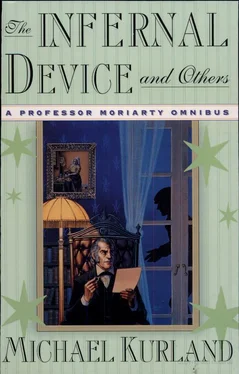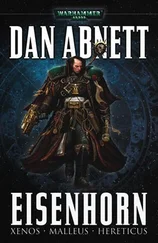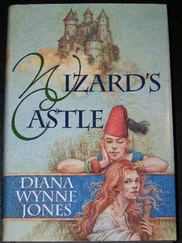"Say, what's your interest in this?"
"Nothing," he told her. "I don't want to see you hurt. You remind me of my own daughter."
"Oh," she said. "Listen, I didn't know he was married, mister. Honest, I didn't."
"Of course not," he said. "He certainly wouldn't have told you."
"What should I do?"
"Don't go with him. Not tonight or ever, if you want to be safe."
"I won't," she said, looking sad. Perhaps it was the thought of all the fine dinners she would miss.
"You should warn the other girls," he said. "I will."
"Write him a note. He's waiting out front."
"What should I say?"
"Tell him one of your chums is sick and you have to stay and take care of her. Have the page boy deliver it to him outside."
"All right, mister. Listen, I don't know who you are, but I suppose I should thank you."
"It is my pleasure, I assure you, miss," he told her. "Write that note now!"
"I will."
He tipped his hat and left her, whistling softly to himself. Once back outside he went around to the front, where the Judas goat was waiting by his carriage, impatiently tapping his feet and glaring at his pocket watch.
He crossed the street and stood by the small rank of hansom cabs that were left after most of the throng had already departed.
Here came the page boy now, looking about him for the man the chorus girl had described. He stared at the little baron for a moment, doubtfully, and then decided that it must be he.
He approached the baron and offered the note. The baron took it, and then glared at the boy, who was still standing alongside him waiting for a tip. The boy touched his cap and ran off.
Sweet little Judas goat, thought the man who had become the wind.
The little baron peered at the note, holding it close to his face. Then he stepped under the marquee to try to find enough light to read it. He stared at it intently for a minute, then, with a savage curse, he crumpled the paper into a little ball and threw it into the gutter.
The man watched his Judas goat stamp over to the black brougham, obviously quivering with rage to the roots of his mustache. The baron cursed out his driver and climbed up into the carriage, viciously slamming the door behind him.
The man who had become the wind approached the first hansom in line. "You see that brougham?" he asked the cabby. "1 want you to follow it."
"What for, mate?" the cabby demanded, as the man climbed aboard.
"For an extra crown over your fare. A half-sovereign if you don't lose it!"
"A half-sovereign?" the cabby exclaimed. "Right on, mate, you've got it!"
The driver of the brougham flicked his reins, and the Judas goat started off down the dark street. Close behind him followed an avenging wind.
EIGHT — THE HOUNDS
If
once a man indulges himself in murder, very soon he comes to think little
of
robbing; and from robbing he next comes to drinking and Sabbath-breaking, and from that to incivility and procrastination.
— Thomas De Quincey
The itinerant street artist, a shabby, crumpled man with a hodge-podge of broken colored chalks, chalk rubble, and chalk dust in an ancient cap by his side, knelt to his work on the pavement at the Russell Square corner of the British Museum, a short distance away from where the guidebook hawkers were plying their dubious wares before the museum's great marble facade. Quickly, and with a deft, sure hand, the street artist sketched a row of pictures on the pavement squares in front of him. His subjects were taken from the great city that surrounded him and was his life. The Crystal Palace appeared in the first square, set in the trees and with a line of carriages along the drive in the foreground. The Houses of Parliament as seen from over Westminster Bridge were the next subject, with one lone tugboat passing on the Thames. Then the West Front of Westminster Abbey appeared, and a parade of well-dressed gentlemen and ladies were quickly chalked in, marching in a stately fashion, two by two, toward the great doors.
A stocky man in a well-worn bowler hat who was lounging by the Russell Square corner came over to stare down appreciatively at the colorful chalkings. "Quite nice, that," he said. "Quite nice, indeed. Here you are!" And he tossed a twopenny bit into the artist's cap.
"Thank 'ee, gov'nor; thank 'ee indeed. Very good of your wor-
ship to say so," the artist said, sitting back on his heels. He tossed his chalks back in the cap and stared down at his work. "Is the professor in or out?" he demanded in an undertone.
"What?" The man started backward in surprise, seeming to almost choke for a second.
"Don't be so obvious, my man," the artist said. "Keep looking down at the pavement and answer my question, if you can."
"I don't know what you're talking about," the stocky man said indignantly.
"Don't be ridiculous," the artist said. "You are a CID detective named Gordon. I am Sherlock Holmes."
"Well, I'll be a—" Detective Gordon said, staring down at the grimy artist.
"Quite! Now, is the professor in or out?"
"He went out in his carriage about an hour ago. Macy and Stevens followed behind."
"First time out today?"
"Yes, sir."
"And last night?"
"In at four in the afternoon, and not out again until an hour ago."
"I expected no less."
"How's that, sir?"
Holmes stood up and stretched, stamping some of the stiffness out of his legs. "The body of Sir Geoffrey Cruikstaff, the Minister of Colonial Affairs for her majesty's government, was found this morning," he told the detective. "He was murdered in his study at some time between two and four in the morning, as closely as the autopsy surgeon can tell. It would be too much to expect that Moriarty was abroad and without an alibi to cover the time. And this time, damn him, the police are his alibi."
"Sir Geoffrey Cruikstaff?" Detective Gordon asked. "Why, sir, that is incredible!"
"I agree," Holmes said dryly.
"Why, Sir Geoffrey was under a twenty-four-hour guard. He claimed to have received death threats from some oriental secret society."
"That is correct," said Holmes. "At least his residence was under guard. Sir Geoffrey reserved the right to move about unwatched and unguarded outside his house. Which was, perhaps, foolish. He exercised that right last night, coming home no less than two hours before his death. Nevertheless, it was at home and not outside that he was killed. At the time of his death there were four constables outside the house and two CID plainclothesmen inside the house. And still he was found lying across his desk with his throat cut."
Gordon shook his head. "I had that duty myself a fortnight ago," he said. "Spent the night in his front hall for almost two weeks. And to tell you the truth, sir, I never took them death threats seriously. None of us did. Inspector Gregson just had us there because of Sir Geoffrey's position, you know."
"I know."
"Done in by an oriental secret society. What do you know?"
"It wasn't any oriental secret society," Holmes snapped. "It was the same hand that killed Lord Walbine, and Venn, and Darby, and Stanhope. It was an occidental hand. And, unless I miss my guess, whoever supplied the hand, it was Professor James Moriarty who supplied the brain."
"I can't speak to that, sir," Gordon said, "but I can speak to his location. The professor was in his house all night, and didn't go back out until an hour ago."
"That is when you saw him go out, at any rate," Holmes remarked. "Moriarty is a downy bird, and if he didn't want you to see him going out, why then he would go out without your seeing him."
"Begging your pardon, sir," Detective Gordon said with the apologetic air of one who has interrupted his superiors once too often with information they didn't wish to hear. "It ain't just that we didn't see him go out. We actually, so to speak, saw him at home."
Читать дальше












